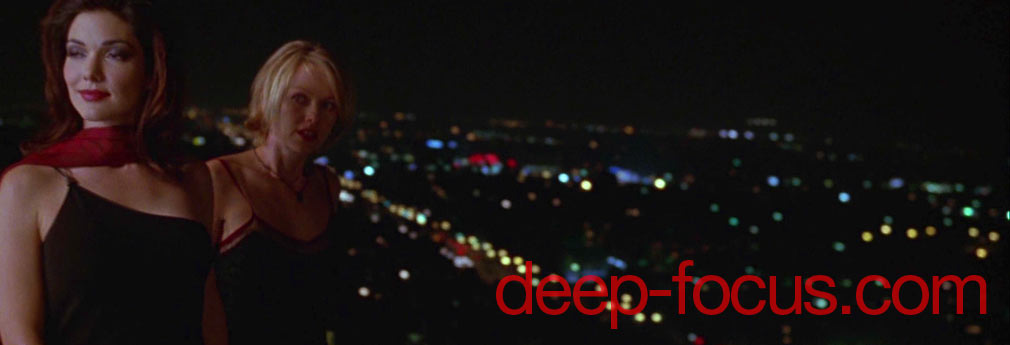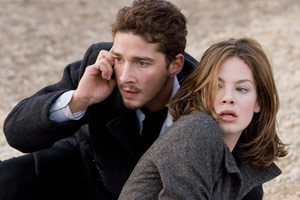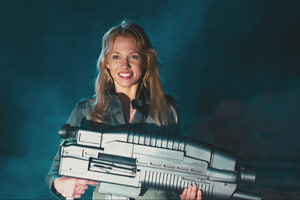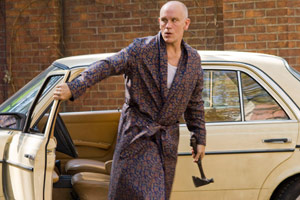Recently in Books Category
 The Maltese Falcon by Dashiell Hammett
The Maltese Falcon by Dashiell HammettCairo, speaking with difficulty because of the fingers on his throat, said: "This is the second time you've put hands on me." His eyes, though the throttling pressure on his throat made them bulge, were cold and menacing. "Yes," Spade growled. "And when you're slapped you'll take it and like it." He released Cairo's wrist and with a thick open hand struck the side of his face three times, savagely. Cairo tried to spit in Spade's face, but the dryness of the Levantine's mouth made it only an angry gesture. Spade slapped the mouth, cutting the lower lip.The Maltese Falcon is widely considered not just a high-water mark in the history of mysteries and crime fiction, but a first-of-its-kind example of the hard-boiled detective novel. Hammett certainly has the stuff for literary fiction — the language is blunt but reflective of fairly complex psychology, the story dense and detailed. The impact of the story is softened somewhat by a necessary familiarity with the circumstances — film buffs already know the story behind Miss Brigid O'Shaughnessy (née Wonderly), the big Mr. Gutman and the effeminate Mr. Cairo. It's hard to get Humphrey Bogart's iconic portrayal of detective Sam Spade out of mind, but the character on the page is a somewhat rougher, more tightly wound tough guy than Bogie's generally relaxed portrayal suggests. ("He looked rather pleasantly like a blond satan," Hammett explains in the opening paragraph.) The book's most shocking passage, for me, involves Spade's sadistic beatdown of the homosexual Mr. Cairo, quoted above — I can guess how that played to readers in 1930, but fortunately, there's nuance to the gay-baiting. Spade is badly frustrated by his woman problems — he suffers from the fallout from an affair with his partner's wife, and maybe already from the creeping notion that chahe'll eventually have to send Brigid up the river — and asserts himself sexually in part by lashing out at the token queer. (Despite treatment that borders on outright mockery, Mr. Cairo is eventually developed as an honorable and likable character.) That twisted idea of what it means to be a man contributes to an intricate, surprising, and well-crafted novel with a quiet but harrowing emotional climax.
After the jump: Chandler, Bulgakov, and (Laurie) King
So I just saw the Saturday-night sneak of The Golden Compass and I have to say that while the film's signature polar-bear smackdown is much cooler than just about anything on current release, the last reel represents one of the dumbest things a Hollywood studio has done all year. Yes, Philip Pullman's novel had a cliffhanger ending — but it was an actual ending, and a pretty great one at that. The movie has no ending; it only has a swelling of strings, an extended VFX shot, and a slow fade to black. Kid-flick audiences are likely accustomed to their status as second-class citizens, and non-readers of Pullman's trilogy don't know just how egregious the elision really is (basically, the story's emotional payload has been excised, or at least deferred to the opening reels of a potential second film), but there's something deeply unsatisfying about an ending that explicitly promises a confrontation that it declines to deliver. It represents, I think, a failure of nerve. If Peter Jackson's Lord of the Rings trilogy was the product of a studio with big, swinging cojones, this is a release from a studio that's scared of its own shadow — a studio that had no business adapting the notoriously problematic His Dark Materials trilogy in the first place.

If you fly cross-country much and have yet to make the acquaintance of Michael Connelly, well, maybe you'll thank me later. Sure, I've tackled more highbrow material on long flights, but Connelly's mystery novels are the most compulsively readable things I've yet discovered, and they're readily available in the kind of airport-lounge newsstands where you might find yourself scrounging for something on short notice. Yes, there's something almost quaintly pretentious about a novelist whose main character is a crusading L.A. cop named Hieronymous "Harry" Bosch. (He has darkness in his soul!) And yes, the stories can feel repetitive and formulaic. But Connelly is a former newspaperman who cranks out relentlessly clean prose and reliably twisty plots that make turning the pages an easy pleasure, and his attention to the ordinary details of good policework is convincing. I'm always happy to know there's a new Connelly paperback on deck for my next long flight — I just got back from Vegas and can report that The Closers is typically absorbing reading, though it's not a good place to start. Try to get ahold of 1992's The Black Echo, which introduces Bosch to the world. (If you're wondering about movies, Clint Eastwood adapted Blood Work, a non-Bosch novel from 1998.)
Having tackled Thomson's ego-stroking celeb bio Nicole Kidman (and, let's face it — his ego wasn't all he was stroking when he rubbed out that tome), I found myself trying to think what Thomson's writing was like, lo those many years ago when I considered him one of the very best writers on film. The Whole Equation: A History of Hollywood helped me remember. It's a worthy goal Thomson lays out for himself. He wants to write a film history text that concentrates on money and personality, showing the ego trips and business sense that worked way behind the scenes to determine not just what movies were made in the classic Hollywood system, but how they were made and with whom. His constant companions in this endeavor are F. Scott Fitzgerald, whose unfinished novel The Last Tycoon seems to shed some light on the movements of the Hollywood machine, and Robert Towne, whose failure to make a third Jake Geddes film strikes Thomson as a kind of tragedy. For long stretches, Thomson's insights are credible, and he has an impressive command of the old-school Hollywood anecdote. But there's a lot of strained weirdness, as well, like Thomson's eagerness to dismiss silent film as a meaningful art form, and what seems to be a general distrust of moviemaking-as-art in general. The prose occasionally grows quite purple, though never with the page-filling obstinacy of the Kidman book. Though it gets to be hard going in its latter passages, The Whole Equation does evoke a century-long businessmen's melodrama on a scale suiting Hollywood -- conjuring sex and money, ambition and regret, Thomson suggests the wondrous darkness at the heart of American film.



